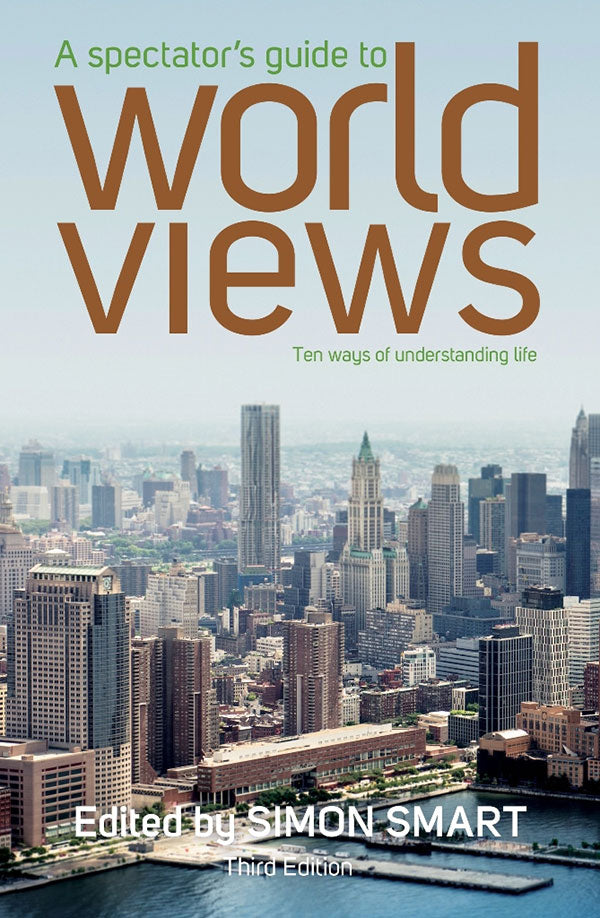
Five steps to a meaningful Father’s Day
Tips for celebrating milestones.
Father’s Day is a significant moment in Australia’s cultural calendar. School children spend class time making cards and many schools have Father’s Day stalls where students can buy a small gift for dad while raising money for the local P&C. Every shop and business you can imagine has a Father’s Day special just right for that dad who wants the new Ryobi 6-in-1 hedging tool, the latest V6 motorcycle spark plug filter, the recently released biography about Australia’s 1983 Commonwealth Games polo bronze medallist or two hours of solitude at the sauna and massage wellness centre.
Honouring God’s good design
As Christians, we rightly celebrate and honour our fathers, not only as recipients of our material or experiential gifts, but because of the important role that dads have in God’s good design for the family, and because of their imaging of the perfect fatherhood of God ‘from whom every family in heaven and on earth derives its name’ (Ephesians 3:15).
For some, Father’s Day is a day of celebration and joy, as we participate in the warmth of relationships with good fathers, whose actions, words and attitudes more closely image the fatherhood of God. For others, Father’s Day is a day of mourning, loss or anguish: for those who have lost a father, for the father who has lost a child, or for those suffering through the pain of absent, abusive or distant fathers or children who failed to live up to God’s good design for family.
From the account of creation in Genesis 1–2 we see that God has a high view of family, and family language saturates God’s own self-description throughout the Scriptures as father, mother, husband and of course, Jesus the Son. All the more reason why the pain of broken and failed family relationships is felt so deeply by fallen and fallible people like you and me.
Whether it be through joy or sorrow, Father’s Day is an annual event through which we can remember and properly honour the fathers in our families, churches and communities.
Making the most of milestones
Debbie Streicher of Milestone Ministries writes about the five stages of celebrating milestones in an individual’s life: name it, equip it, bless it, gift it, and reinforce it.1 How might we apply these five stages to celebrating Father’s Day?
Name It relates simply to acknowledging the event and recognising its significance for the person. Even though Father’s Day has a regular spot on the calendar, it still requires an intentionality from the family, the church and the community. In a culture that does not always affirm Christian views of family relationships, we ought to embrace the opportunity to acknowledge the importance of fatherhood (despite how commercialised the day has become).
Equip It means to include ‘some caring conversation … and a related Bible passage’ that grounds the acknowledgement of this day in Scripture. For Father’s Day, this may be a passage that reminds earthly fathers about their familial responsibility (for example, Ephesians 6:4; Proverbs 22:6) or a passage about the fatherhood of God, which is good news for every believer, regardless of how our own fathers succeeded or fell short of this ideal. For example, you could read from Psalm 103:
8 The Lord is compassionate and gracious,
slow to anger, abounding in love.
9 He will not always accuse,
nor will he harbor his anger forever;
10 he does not treat us as our sins deserve
or repay us according to our iniquities.
11 For as high as the heavens are above the earth,
so great is his love for those who fear him;
12 as far as the east is from the west,
so far has he removed our transgressions from us.
13 As a father has compassion on his children,
so the Lord has compassion on those who fear him. (Psalm 103:8–13)
Bless It refers to specifically praying a blessing over the person whose milestone you are celebrating. In this instance, praying for the father in your home, the fathers in your church, and even extending out to the fathers in your community. You could use the Scriptures above to inform your prayers, or be more specific given the particular needs of the fathers in your context. This would also be a space in which you could lead a lament for those for whom Father’s Day has the sting of loss and hurt.
Gift It may seem an obvious connection, and in our consumeristic age, it almost goes without saying that we’ll give a gift at a milestone celebration. There is certainly opportunity for those of us in the affluent west to actively disengage from the seeming necessity to couple purchasing with celebration. However, there can be great value in creating a tangible connection to the celebration of Father’s Day. This does not need to be a purchased item—it may be something handmade, or something natural, like a rock painted with a significant icon. As a general rule, a long term, durable item, is going to be more significant than a consumable. A Christian book could also make a gift that has ongoing significance.
Reinforce It is the final stage of milestone celebration. This entails the regular reminder of the significance of the milestone and continued prayer and conversations. That’s where having a durable gift can help, as it will be something that the father can continue to come back to. The annual nature of Father’s Day means that there is the built-in rhythm of reinforcement each year, but it may be that your family or church community can also reflect on fathers and fatherhood at other times in the year.
Streicher writes:
‘Identifying milestones and taking intentional steps to make them opportunities for families to grow together in their faith become a way to encourage faith talk both within and outside the church walls. The home and community can be places where change and growing in one’s faith become the norm’.
How might you be more intentional about your celebration of Father’s Day this year to grow your family’s faith?
[1] Debbie Streicher ‘Connecting generations through milestone celebrations’ in Seibel (ed.) Engaging All Generations, ACU Press, Abilene.
---
Tim Beilharz is a children’s ministry advisor, lecturer, trainer and writer for Youthworks. In his spare time, Tim also doubles up as the Children’s Pastor at Soul Revival Church. Tim lives in Sydney with his wife and kids and finds few things more enjoyable than grabbing a strong coffee with either a book or a friend and thinking through how to help kids know, love and obey King Jesus. You can find more of Tim’s writing, podcasting and research at timbeilharz.com.

A Spectator's Guide to World Views
Drawing together research and insights of 11 writers, each chapter presents an objective treatment of a major system of thought, along with a focus on where each hits the ground in real life in film, music, advertising, literature and conversation.
For more articles from Growing Faith, subscribe to our monthly e-newsletter.
To hear about the latest books and resources from Youthworks Media, subscribe here.








